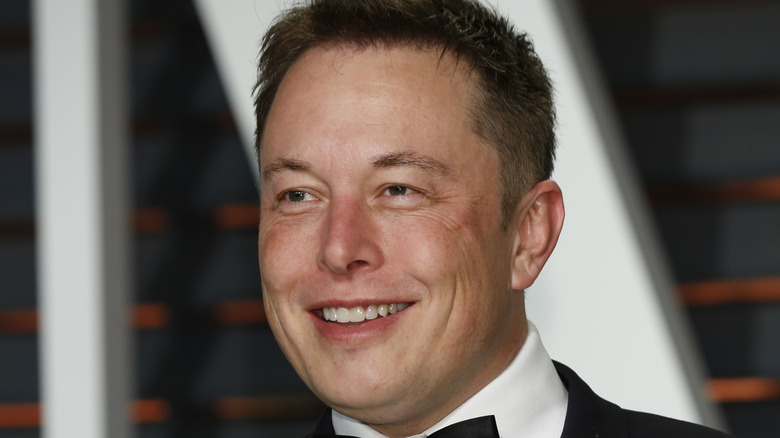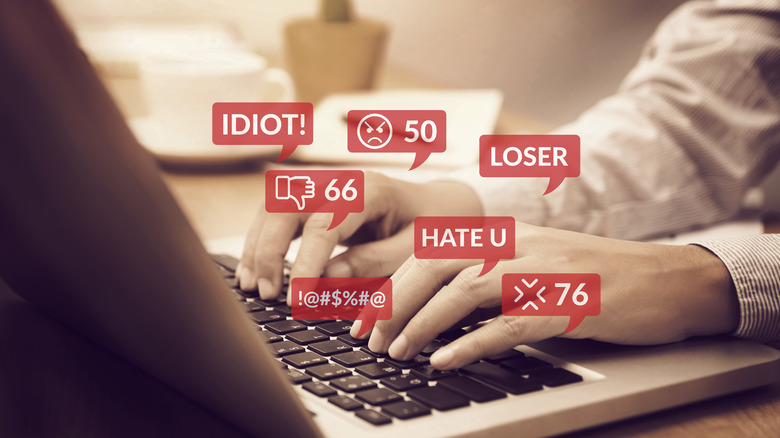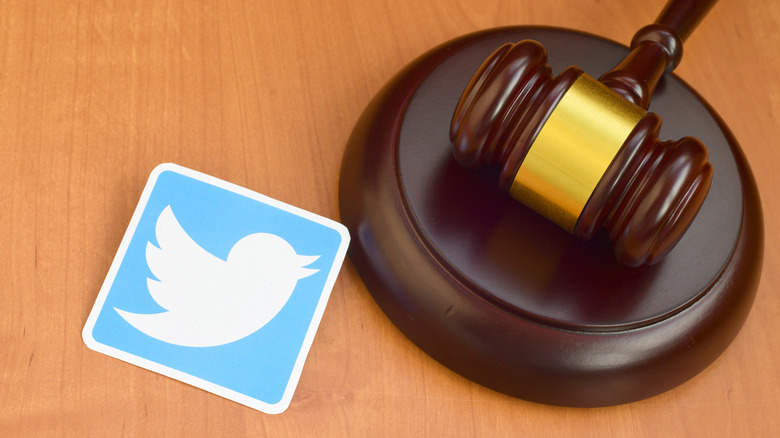Twitter's Safety Chief Speaks Out After Elon Musk's Takeover
Elon Musk's takeover of Twitter followed a series of bold claims and promises, the most notable of which centered on Musk's desire to turn Twitter into a "free speech platform." However, putting a plan into action is a lot more complex than simply making a statement. Musk previously described himself as a "free speech absolutist," which by definition means he doesn't believe speech should be limited in any way. He has also directly contradicted this statement on a number of occasions by claiming speech should align with whatever the law says. This in itself is vague, as nations have wildly different laws when it comes to speech. For example, Canadians can get away with criticizing their prime minister or current monarch, while that kind of talk in North Korea usually ends quite badly.
In recent days, Musk has attempted to provide a bit more detail on his free speech plans for Twitter, including making vague references to a system based on how movies are rated, as well as forming a moderation council to oversee major decisions. The moderation council will have a say on Twitter's new rules, and it could take a while for changes to be implemented. This hasn't stopped certain users from immediately taking things too far. Some Twitter users reacted to the takeover by posting slurs. According to Business Insider, the use of the "N-word" on the platform increased by over 500% since Musk's purchase was finalized. This particular statistic caused basketball player Lebron James to tweet, "I hope [Musk] and his people take this very seriously because this is scary AF. So many damn unfit people saying hate speech is free speech." Musk quickly responded to James with a quote tweet from Twitter's Head of Safety & Integrity, clarifying the company's current position.
Twitter's rules haven't changed so far
The company's Head of Safety & Integrity, Yoel Roth, recently tweeted a lengthy thread addressing the increased use of slurs and "hateful conduct" following Musk's takeover. The company believes the increase in slurs, harassment, and other disorderly conduct is an "organized effort" to make people believe the way Twitter deals with such conduct has changed. Roth stated, "More than 50,000 Tweets repeatedly using a particular slur came from just 300 accounts." He described the majority of those accounts as inauthentic and says the company is taking action against those responsible for the alleged trolling campaign.
It was this thread that Musk tweeted in response to LeBron James, and he seemingly did so to illustrate that neither he nor his new company was responsible for the actions of those users. Musk himself has also tweeted, explicitly stating that no rules have been changed yet, and Twitter's terms of service remain as they were before the takeover. The actual rules that are still in place are fairly complex. Roth himself confirmed that there isn't a list of words that are banned on the platform, and the context words are used in is considered when assessing complaints.
A specific example Roth uses is the idea of "reclaimed speech," which is when a group takes a slur that has been used negatively against it and repurposes its meaning for use within the group itself. Reclaimed speech is somewhat common, but remains controversial even within marginalized groups. Some people are still uncomfortable with a slur being used, even if one of the victims is using the slur after "reclaiming it" for the group. A recent example of this kind of controversy revolves around the use of the word "queer" within the gay community (via NPR).
These are the rules right now
Twitter's "hateful conduct policy" punishes users who "promote violence against or directly attack or threaten other people on the basis of race, ethnicity, sexual orientation" and numerous other categories. The company will also ban accounts it believes have been created for the purpose of attacking others, as well as those with offensive usernames. The policy itself recognizes that people in certain groups are both more prone to abuse, and tend to be impacted harder by the abuse they receive.
As a result, there is a specific rule against abusing people based on their status as a member of a protected category. Violent threats or wishing harm on an individual is also prohibited, as is referencing a genocidal event in an attempt to upset someone. Where things get a bit less clear-cut is with the use of reclaimed words. Normally, a slur could be seen as an attack on someone based on their membership in a marginalized group. However, Twitter's provision for reclaimed words allows context where those words can be used without repercussions.
Twitter will "investigate" in an attempt to understand the context when a slur is used and reported, but the policy also states the company "will never ask people to prove or disprove membership in any protected category and we will not investigate this information." While this is a situation where Twitter has no correct option, it is currently open for exploitation from bad actors and could explain why offensive content sometimes slips through the net. As things stand, violating the hateful conduct policy could result in anything from a user's tweets being less prominent to an outright ban. All of this is likely to change in the near future, as soon as Musk settles on his definition of free speech.


